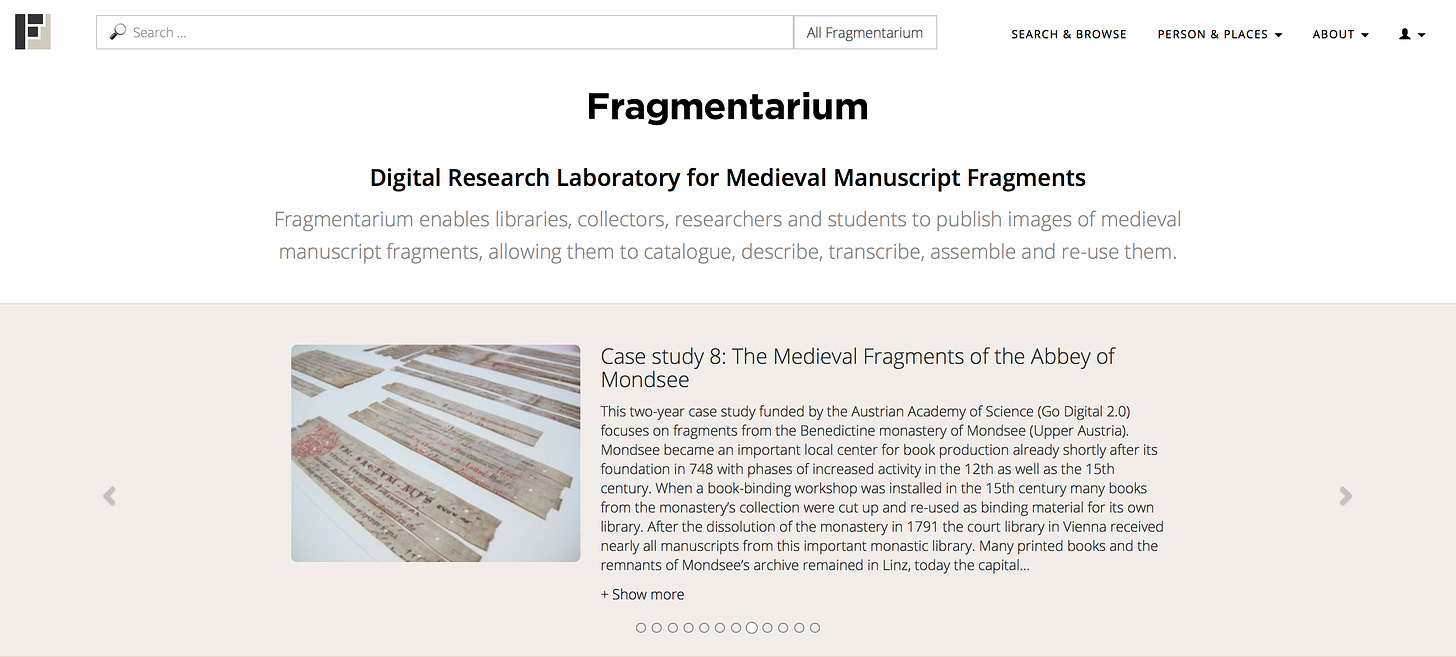Fragmentarium: because manuscript fragments count, too
Let's not be codicists! Manuscript fragments also have a story to tell, and it's usually far more dramatic.
Here's where the freshly-launched Fragmentarium website comes into play.

Rolled out on 1 September 2017, Fragmentarium is an international digital research lab for medieval manuscript fragments that enables libraries, collectors, researchers and stu…
Keep reading with a 7-day free trial
Subscribe to Biblonia to keep reading this post and get 7 days of free access to the full post archives.

